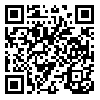Volume 8, Issue 2 (2017)
LRR 2017, 8(2): 225-248 |
Back to browse issues page
Download citation:
BibTeX | RIS | EndNote | Medlars | ProCite | Reference Manager | RefWorks
Send citation to:



BibTeX | RIS | EndNote | Medlars | ProCite | Reference Manager | RefWorks
Send citation to:
Fayyazi R, Sahra-Gard R, Rovshan B, Zandi B. A Comparative study of the Impact of Bilingualism and Gender on Bilingual and Monolingual Learners in Linguistic and Logical-Mathematical Intelligences. LRR 2017; 8 (2) :225-248
URL: http://lrr.modares.ac.ir/article-14-9108-en.html
URL: http://lrr.modares.ac.ir/article-14-9108-en.html
1- PhD student in linguistics, PNU, Tehran, Iran
2- Associate Professor of Linguistics and Foreign Languages University, Shiraz, Fars, Iran
3- Associate Professor of Linguistics and Foreign Languages, Payam Noor University, Tehran, Iran
2- Associate Professor of Linguistics and Foreign Languages University, Shiraz, Fars, Iran
3- Associate Professor of Linguistics and Foreign Languages, Payam Noor University, Tehran, Iran
Abstract: (8711 Views)
The present research initially presents a brief description of two perspectives on the nature of intelligence. Then, it explains the theoretical framework of the research by overviewing the literature on bilingualism and cognitive development. This research primarily aims to explore the impact of bilingualism and gender on linguistic and logical-mathematical intelligences in a sample of monolingual and bilingual high school students (fourth graders) of Fars and Khuzestan provinces in Iran. To fulfill this objective, 448 monolingual and bilingual students were selected from among 67031 students in the 2012-2013 academic year. They were administered Multiple Intelligences Survey questionnaire developed by Armstrong (1993) and the results were analyzed through SPSS software. The findings revealed that the bilingual students rated themselves higher on linguistic and logical-mathematical than monolingual peers. Moreover, the male students gave higher self-estimates for logical-mathematical intelligence than their female peers while female students gave higher self-estimates for linguistic intelligence than their male peers. The results of such studies, which indicate students’ differences on intelligence, may lead to the awareness of curriculum developers and teachers to diversify teaching activities based on learners’ learning styles and intellectual abilities.
Keywords: “Bilingualism”, “Monolingualism”, “Cogninitive development”, “Linguistic intelligence”, “Logical-Mathematical intelligence”
| Rights and permissions | |
 |
This work is licensed under a Creative Commons Attribution-NonCommercial 4.0 International License. |







